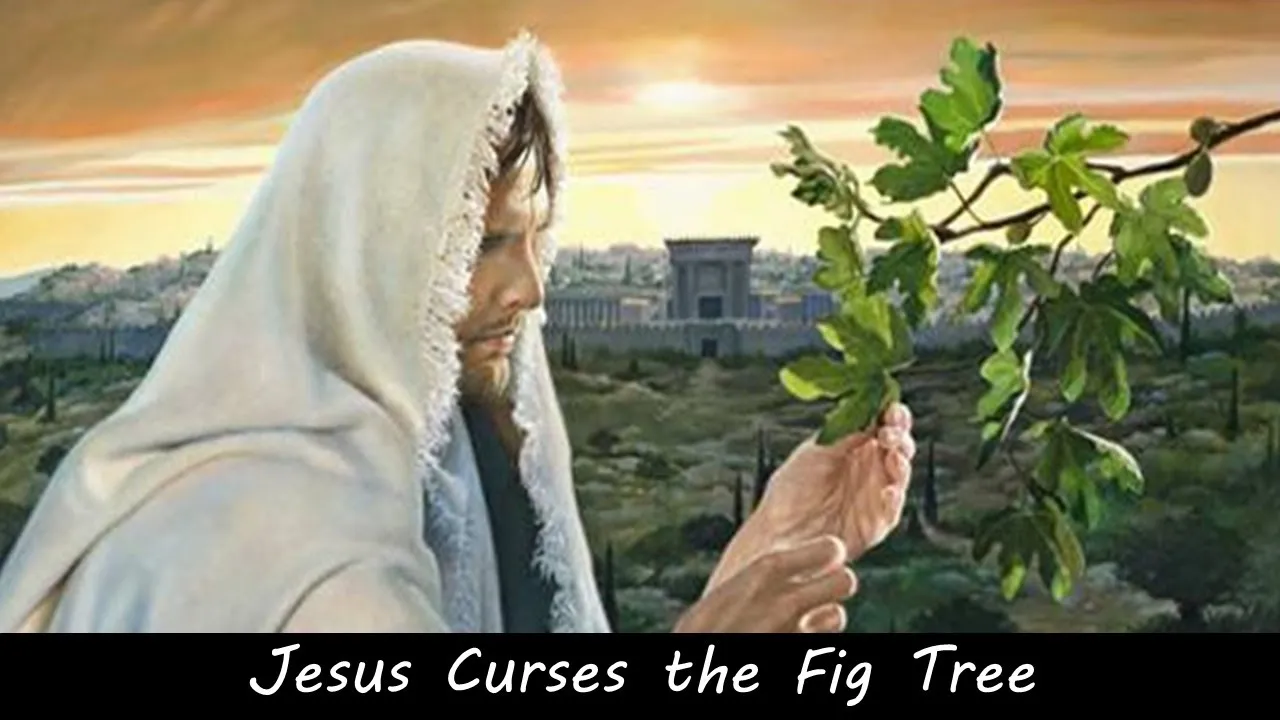Unraveling the Mystery: Why Did Jesus Curse the Fig Tree? A Youth Pastor’s Perspective
Welcome, seekers of knowledge and curious minds, as we delve into the intriguing story of Jesus cursing the fig tree. While this biblical account may seem puzzling at first glance, it holds profound meaning and valuable insights for those who seek to deepen their understanding of Christianity.
Throughout this article, we will explore the nuances of this story, decipher the symbolism of the fig tree, and uncover the underlying message that Jesus was imparting through His actions. As we unravel the layers of this tale, we will also examine how we can apply its lessons to our personal spiritual growth.

Be prepared for a thought-provoking journey that will deepen your faith and provide greater insight into the teachings of Jesus. So, let us venture forth and discover together the meaning behind Jesus’ curse of the fig tree.
Understanding the story of Jesus cursing the fig tree.
Understanding the story of Jesus cursing the fig tree is an important aspect of Christian teaching. This tale, found in both Mark and Matthew’s gospel, tells us about a seemingly harsh action taken by Jesus towards a fruitless tree.

The event took place during Holy Week when Jesus was making his way to Jerusalem. He saw a fig tree that should have had ripe fruit on it but found none. In response, he cursed the tree with words that may seem out of character for someone who preached love and compassion.
However, this story has a deeper meaning than just being about an angry man lashing out at nature. The fig tree represented Israel at the time – it appeared fruitful from afar but lacked substance when examined closely.
Jesus’ actions were not only meant to be symbolic; they also served as a warning to those who claimed faithfulness but didn’t produce any good deeds or spiritual fruits in their lives. It was also meant to teach his disciples about having faith without works – just as how barren trees are useless even if they look healthy from afar.
By understanding this parable more deeply and applying its teachings in our daily lives, we can grow closer to God and become more productive members of society by producing good deeds instead of empty promises or appearances alone.
The symbolism of the fig tree in a biblical context.
The symbolism of the fig tree in biblical context is a fascinating topic that can shed light on Jesus’ actions when he cursed the fig tree. In Jewish culture, the fig tree was seen as a symbol of prosperity and abundance. It represented a fruitful life and was often associated with God’s blessings.
In the Old Testament, Israel is compared to a vineyard or garden that God planted and tended to. The prophet Jeremiah speaks about how Israel should bear fruit like a well-watered garden, but instead has become barren like an unfruitful fig tree (Jeremiah 8:13).
When Jesus saw the barren fig tree on his way to Jerusalem, it may have triggered memories of this prophetic imagery for him. He may have been using this as an object lesson for his disciples and those who witnessed it.
Jesus’ cursing of the fig tree can be seen as symbolic of judgment upon those who claim to be spiritually fruitful but are not producing good works or bearing fruit in their lives (Matthew 21:19). This message is reinforced by Jesus teaching about true faith being known by its fruits (Matthew 7:16-20).
As Christians today seek meaning from this story, they can take away important lessons about living out their faith through good works and bearing fruit in their lives. They also learn that external appearances do not always indicate spiritual health and growth.
In summary, understanding the symbolism behind why Jesus cursed the fig tree helps us better comprehend His teachings regarding spiritual productivity; thus serving as valuable insight into our own Christian walk with Him.”
Jesus’ message behind cursing the fig tree.

The story of Jesus cursing the fig tree has left many people puzzled, but its message is profound and worth examining.
In the Bible, we see that Jesus was on his way to Jerusalem when he saw a fig tree with no fruit. He cursed it and it withered away instantly. This may seem like an unnecessary act of anger or frustration, but there’s more to this story than meets the eye.
Firstly, we need to understand that in Jewish culture at that time, fig trees were known for producing fruit year-round. So when Jesus saw a barren fig tree in full leaf during a season when it should have had ripe fruit on its branches, he knew something was not right.
Symbolically speaking, this can be interpreted as how appearances can often deceive us. The barrenness of the fig tree represented false pretenses and hypocrisy – those who appear fruitful on the outside but lack substance within.
Furthermore, through his actions towards this seemingly insignificant object -the cursed- Jesus demonstrated his divine power over creation itself; emphasizing how faith could move mountains (or uproot trees). In Christianity today there are countless lessons about having faith even if things seems impossible or hopeless at first glance.
In essence ,Jesus’ curse of the Fig Tree shows us two important messages: firstly as Christian’s all our deeds must bear fruits so if they don’t then we will be exposed despite any facades . Secondly through having faith anything is possible including being able to overcome difficult situations in life .
Connecting the story to personal spiritual growth
The story of Jesus cursing the fig tree has puzzled many for centuries. Some have even used it as a reason to doubt the goodness and love of God. But when we take a closer look, we can see that this story is not just about a tree, but about our own spiritual growth.
In this story, Jesus sees a fig tree with leaves but no fruit. He curses the tree and it withers away. At first glance, this may seem harsh or unfair. But when we dig deeper, we can see that Jesus was using this moment to teach an important lesson.
Just like the fig tree had leaves but no fruit, sometimes our lives can appear full on the outside without any real substance on the inside. We may go through all of the motions of being Christian – going to church, reading our Bibles – but if there is no fruit in our lives (love, joy peace etc.), then what good are those actions?
Jesus was challenging us to examine ourselves and make sure that our faith isn’t just surface level or performative; rather he desires genuine transformation in us by His power which would result in fruitful living.

So next time you read about Jesus cursing that poor little fig-tree remember how he challenged his disciples towards authentic spiritual growth- one rooted deep within Christ’s grace- bringing forth abundant life!
Conclusion
The story of Jesus cursing the fig tree is an important one for us to reflect on, especially when it comes to our own spiritual growth. We must remember that God wants us all follow his will and trust in His plan. It is through reflecting on stories like this that we can understand more clearly the importance of faith and practice living out a life rooted in Christ’s teachings. If you would like to learn more about Christianity or have questions specifically related to this subject then please reach out today!












